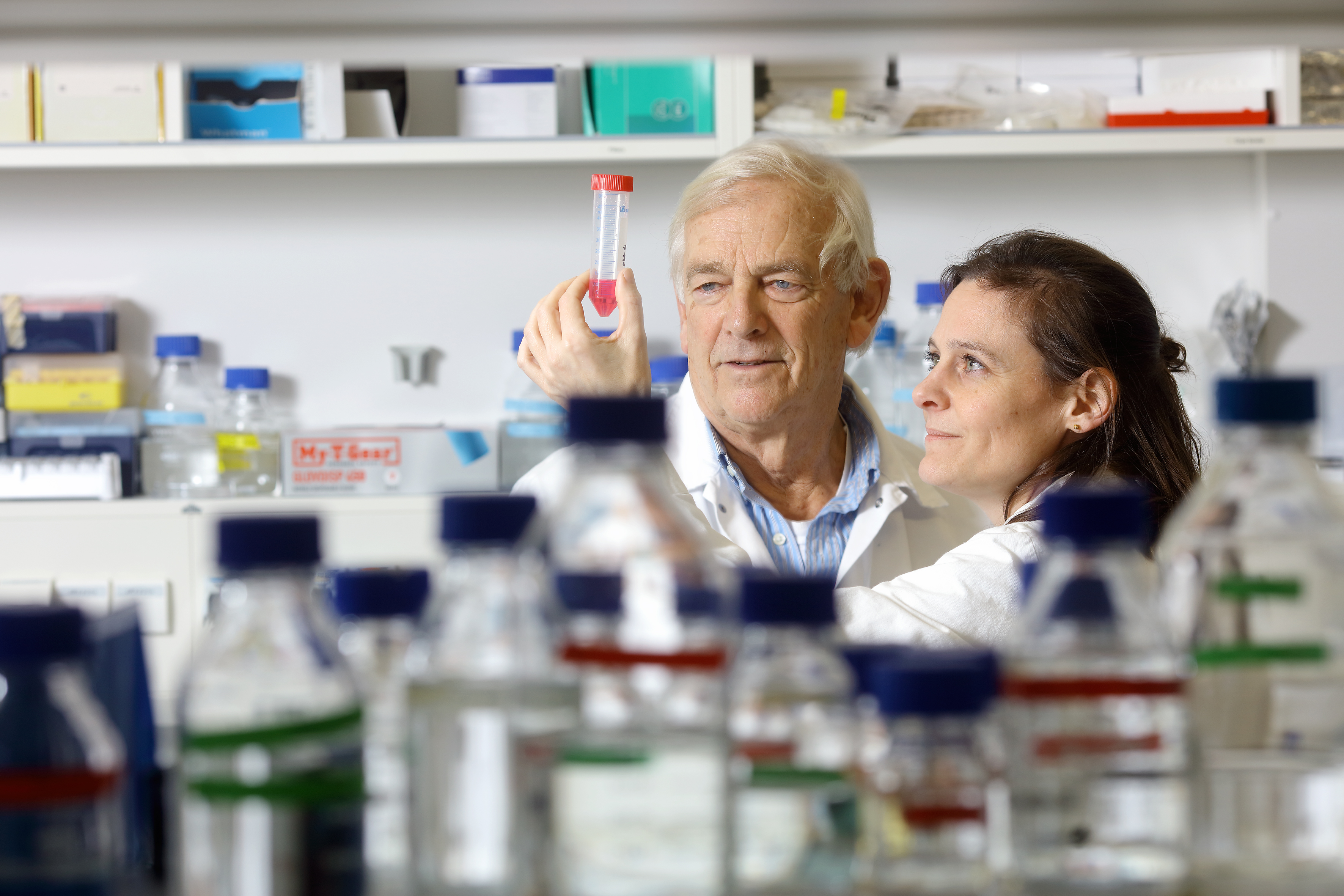More knowledge about Parkinson’s disease is so important
Since his wife was diagnosed with Parkinson’s disease, alumnus Doeko Bosscher has followed the latest scientific developments around this illness with interest. He is now supporting the research of Dimphna Meijer, at the Faculty of Applied Sciences, with a financial contribution. “I see her research as a building block in expanding the knowledge about the illness and ultimately understanding Parkinson’s disease.”
Doeko Bosscher is an alumnus of the Faculty of Mechanical Engineering and worked in the paper industry for a long time. He has experienced Parkinson’s disease from very close by. His wife was diagnosed with the disease more than 20 years ago. She passed away just over a year ago.
Incurable
“Parkinson’s disease is incurable at present. All the medication can do is relieve the symptoms,” says Bosscher . “Dimphna Meijer’s research is on understanding the illness. Better treatment will only be possible if the basic knowledge is there.” Apart from this, he sees that the project has another special feature. “Work is being done on an artificial synapse, the place where two neurons meet. Artificial models of the brain can be used to examine certain factors that you would never be able to test on humans or animals. These could be new medications, but also things like the impact of pesticides on the illness. You can use Meijer’s mini-brains to check these.”
Meeting each other in the Meijer Lab
Given his interest in the research, the alumnus and the scientist met up at the Meijer Lab in Delft. A bionanoscience laboratory was new to Bosscher. “It is very different to what I expected and it is impressive that researchers can gather so much knowledge in a small lab with just a few pieces of equipment.”
'My financial contribution is a cherished way to support research that affects me personally.’
Doeko Bosscher
Bosscher hopes that his donation will also ensure that scientists can direct more of their efforts on research. “Researchers like Dimphna Meijer, who heads a group, need to ensure that research is done on top of securing an income flow. To my mind her attention is diverted away from science too much. My financial contribution is a cherished way to support research that affects me personally. Apart from this, I still feel connected to TU Delft and this gives me confidence in both the institute and the research.”
Nanobrain speeds up brain research
The forecast is that in 2040 more than 500,000 people in the Netherlands will have Parkinson’s disease, Alzheimer’s, or another form of dementia. To better understand these brain disorders and to develop medicines for them, more basic knowledge is needed about how our brain works. In her lab at TU Delft, Dr Dimphna Meijer is working on a nano scale model of the neuronal synapse: a minute but intricate biological system that could hugely speed up brain research.
Meijer is building her fundamental ‘nanobrain’ from cellular elements. She is starting with two simplified membranes. She puts the molecules on them one by one which together form a neuronal synapse, the point of contact between two brain cells. It is also the synapse where defects often emerge in neurodegenerative disorders. If they succeed in imitating these defects in the model, a Parkinson’s or Alzheimer’s synapse can be added and used for research on medication.
Alumni contributions mean that more students and PhD students can work on the nanobrain model to speed up its development. This will allow us to get a better understanding of brain diseases while at the same time the next generation of technical neuroscientists is being trained.
